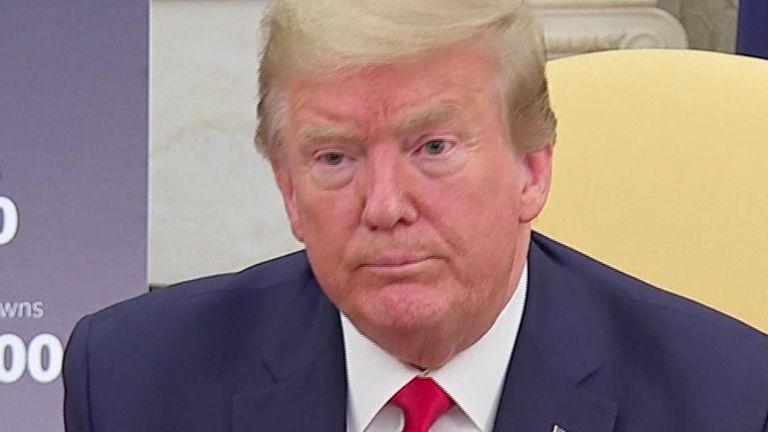A new cluster of coronavirus cases linked to a Seoul party district has prompted the reinstatement of social distancing measures in the capital and raised fears of a new wave of cases in South Korea.
Park Won-soon, Seoul’s mayor, has effectively shut the city’s bars and nightclubs with an order that bans them from hosting crowds of people.
“Carelessness can lead to an explosion in infections — we clearly realised this through the group infections seen in the Itaewon club case,” Mr Park said.
Officials attributed the new cluster to at least one person who visited several clubs and bars in the popular nightlife district of Itaewon last week, potentially coming into contact with as many as 1,500 other partygoers.
The case is a blow to the government in South Korea, which has won international praise for mass testing, high-tech contact tracing and social distancing to combat what was, for a time, the worst outbreak outside of China.
Kim Woo-joo, a professor of infectious diseases at Korea University Guro Hospital, said the government had been in too much of a rush to restart the economy.
“A more gradual approach was needed, starting with opening low-risk facilities first, but we reopened even high-risk places at the same time although we knew that bars and clubs — where many people gather and air circulation is not effective — are a fertile ground for virus infection,” he said.
South Korean health officials reported 34 new cases on Sunday, most of which were locally transmitted, marking a sharp increase from the past week when the country had several days of no local infections.
Authorities are braced for a further rise in infections due to the difficulties in contact tracing in the area. Despite the requirement for entry logs at many establishments, officials found most for the Itaewon clubs and bars to be inaccurate, raising fears over containing the outbreak.
“I am so worried about a jump in new cases . . . I am cancelling or delaying meeting up with my friends,” said Yoon Ah-eurm, a waitress in an Itaewon café.
Mr Kim warned that the outbreak could be the “beginning of a second wave of infections”.
“The problem is that about two-thirds of the people who visited the clubs are out of reach now. It is hard to trace them as they are unwilling to step forward because of privacy concerns,” he said.
Moon Jae-in, South Korea’s president, on Sunday cautioned that while the country’s virus handling was a source of national “pride”, a “prolonged war” lay ahead.
Editor’s note

The Financial Times is making key coronavirus coverage free to read to help everyone stay informed. Find the latest here.
“The [latest] infection cluster . . . has raised awareness that, even during the stabilisation phase, similar situations can arise again anytime, anywhere in an enclosed, crowded space. It's not over until it's over,” he said.
The South Korean government has already boosted virus-related spending to about $200bn, more than 10 per cent of the country’s gross domestic product.
Even so, Mr Moon warned of “colossal” economic damage.
“The service industry contraction, which began in tourism and travel and dining and lodging, is expanding into a manufacturing industry crisis,” he said.
In response, Mr Moon announced a “Korean version” of the US Depression-era New Deal, vowing to boost job growth via increased spending in technology and infrastructure as well as by expanding employment insurance.
https://news.google.com/__i/rss/rd/articles/CBMiP2h0dHBzOi8vd3d3LmZ0LmNvbS9jb250ZW50L2YzZWE0NmM0LWU5ZTUtNDE2My05MWE1LWMzYzVkOGYyMzExY9IBAA?oc=5
2020-05-10 11:09:15Z
52780772959981



